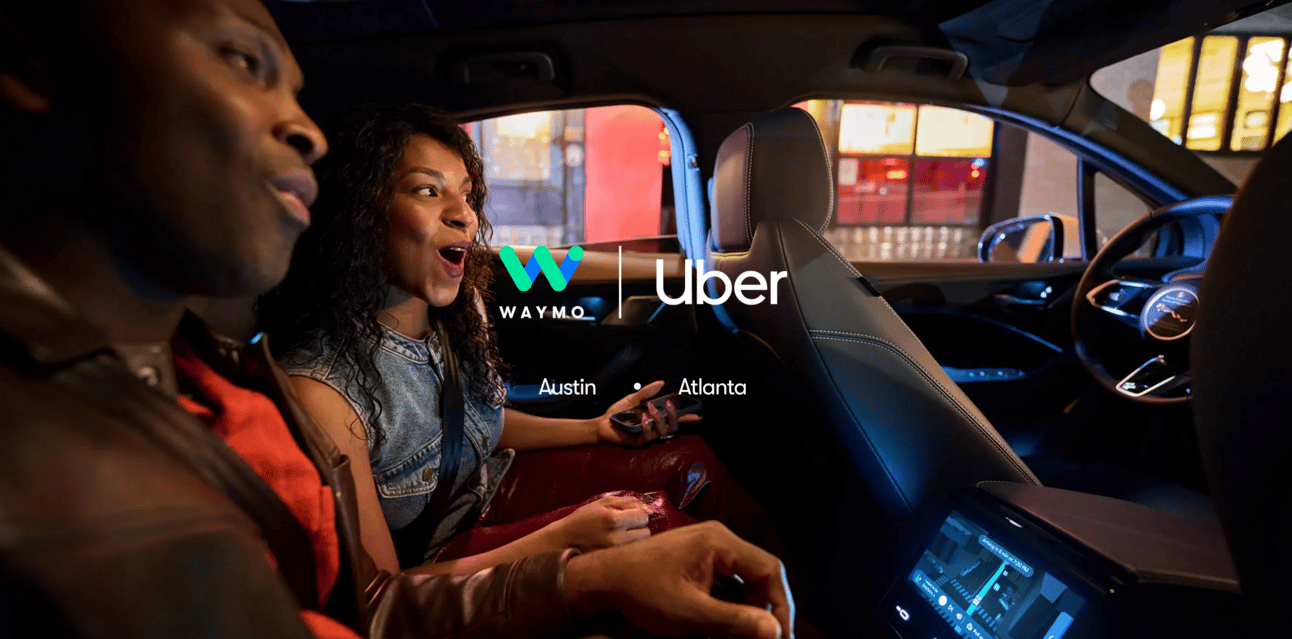
Good morning, and happy Thursday! Our deep fryer is overflowing with crispy goodies—time to feast. 🍟
🤯 MYSTERY AI LINK 🤯
(The mystery link can lead to ANYTHING AI-related: tools, memes, articles, videos, and more…)
Today’s Menu
Appetizer: Driverless Ubers take the streets of Texas 🚗
Entrée: The LA Times introduces an AI editor 🤖
Dessert: Turing Award winners express concerns over AI development 😳
🔨 AI TOOLS OF THE DAY
⛺️ Tribal Camping: Use AI to find the perfect remote campsite. → Check it out
✍️ TypoTab: Refine your writing in seconds. → Check it out
🗣️ Pocket Computer: Give your Gmail a voice. → Check it out
DRIVERLESS UBERS TAKE THE STREETS OF TEXAS 🚗
Next time you get in an Uber, there might not be a driver in the front seat. 🤯
What’s new? Uber has teamed up with Waymo to bring self-driving taxis to the streets of Austin, TX, with plans to expand to more U.S. cities in the future.
How will this work? Riders won’t be able to guarantee a self-driving car, but they can increase their chances by adjusting their app settings to request autonomous rides if they are available. If selected for an autonomous ride, Uber will notify passengers and allow them to switch to a human-driven ride if they prefer. Waymo already operates in cities like Phoenix, San Francisco, and Los Angeles. Now, it’s teaming up with Uber to expand its robotaxi service, beginning with this launch in Austin and expanding to Atlanta later this year.
“At Uber, we’re reimagining how the world moves—a future where autonomous vehicles and human drivers work side by side to help make transportation affordable, sustainable, and accessible for all. With Waymo’s technology and Uber’s proven platform, we’re ready to bring you the ride of the future, today.”
THE LA TIMES INTRODUCES AN AI EDITOR 🤖
I ran out of toilet paper, so I had to start using old newspapers. Needless to say, The Times are rough. 🧻
What’s new? The Los Angeles Times has introduced AI-generated warnings and bullet points for articles that take a controversial stance or express a personal perspective.
What will this look like? AI will automatically label certain LA Times articles as “Voices” if they take a stance or include personal opinions. These articles will also get AI-generated “Insights” at the bottom, which summarize key points and even suggest opposing viewpoints. The goal, according to LA Times owner Patrick Soon-Shiong, is to help readers distinguish between news and opinion.
“We strive to take into account different perspectives, particularly if they don’t align with our own, to inform our views. Our hope is to lay out arguments and analyses that can help our readers navigate complex questions or, at the very least, give them a well-considered way to think about the issues of the day.”
What’s the problem? Not everyone is on board with this initiative. The LA Times journalists’ union is worried that using AI to generate these summaries—without human editors reviewing them—could lead to mistakes and hurt trust in the newspaper. And mistakes are already happening. In one popular case, an AI-generated insight misrepresented an article about the Ku Klux Klan’s history in California, making it seem like the Klan wasn’t as harmful as it actually was.
TURING AWARD WINNERS EXPRESS CONCERNS OVER AI DEVELOPMENT 😳
Whoever invented knock knock jokes should get a No-bell prize. 🔔
What happened? Andrew Barto and Richard Sutton have received the 2024 Turing Award—the highest honor in computing—for their groundbreaking work in reinforcement learning. However, instead of basking in recognition, they are using the moment to express concerns about the reckless pace of AI development.
Want the details? Barto and Sutton’s reinforcement learning techniques—machine learning methods that train AI systems to make optimized decisions through trial and error—have been fundamental to AI breakthroughs like ChatGPT and AlphaGo. However, they worry that many AI companies currently prioritize profits over safety. They join other AI leaders, including Geoffrey Hinton and Yoshua Bengio, in calling for stricter safeguards. The two scientists warn that companies are rushing AI models to market without proper testing, comparing such approaches to “building a bridge and testing it by having people use it.”



